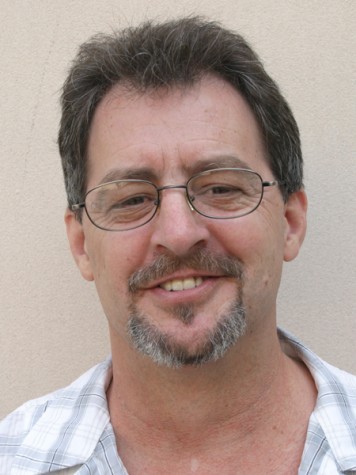A college student could be defined as a person enrolled at a college or a university, in which a person pays for tuition, purchases books and attends classes.
With about 14,000 students at GCC, there are some who have physical or mental disabilities that limit their activity in relation to their education. However, the college does accommodate disabled students each day through the services that the school provides for them.
“We provide a full array of services,” said Cook. “There are three centers on campus: the Center for Students with Disabilities (CSD), the High-Tech Center (HTC), and Instructional Assistance Center (IAC).”
According to the CSD website, the HTC has 20 workstations equipped with various assistive technologies that were designed “to meet the computing needs of students with disabilities.”
The goal of the HTC is to promote universal access to technology and to ensure that students with disabilities have access to the most effective technology available for achieving their academic and vocational goals.
Services include computer access evaluations, computer classes, test proctoring accommodation and alternate media evaluations.
The IAC is there to “provide support for students with verified disabilities pursuing successful college experience.” The relationship between students and faculty is to assure that equal opportunity for a quality education is provided.
They offer a Learning Ability Assessment, test proctoring, specialized tutoring and there are learning specialists.
The school also has a CSD Counseling Department, a Deaf Program, a Work Ability Program and an Adapted Physical Education (APE) program for the students.
“Students [also] have note-takers, in-class interpreters and real life captioning [to assist them during class],” said Cook.
A campus club called Delta Sigma Omicron (DSO) was founded to dedicate the social interaction of people with disabilities as well as the community. The purpose of the club is to be a leader in presenting opportunities of life to the club members and they promote their mantra through several group activities throughout the year.
For accounting student Tony Areepong, whose disability was caused by depression, said that the school does assist students with disabilities and that he does not “want to change it.”
Cook also said that “the school has been very open [to disabled students] and it is a very accessible campus.”
Areepong has classes located in the Auditorium, Administration, Library, and San Rafael building. The overhead walkways in-between buildings, elevators, ramps, automatic doors and trams that take students up and down the hills around campus were created to reduce that amount of time it takes for the student to get to class.
“I think that the college has been very accommodating with disabled students, [especially] when you think about the fact that the school is built on the side of a mountain,” she said. “All of that were put into place for students with disabilities.”
According to Cook, the school is developing sensors for the visually impaired. For instance, yellow lines with integrated bumps seen on campus were made to inform the visually impaired that they are crossing a pathway.
“[Even] the new parking structure will eliminate a lot of barriers that students with disabilities have faced with,” she added.
Cook said that the school has come a very long way to meet the students’ needs. “The staff is welcoming and the instructors are great,” she said. “The administrators are very supportive.
“We’ve probably been doing this for 30 or 40 years,” she said. “[And] the school has been very receptive since the beginning. Our students don’t really lack service or the ability to go wherever they need to go. [That way] we can make sure that they have everything they need.”

